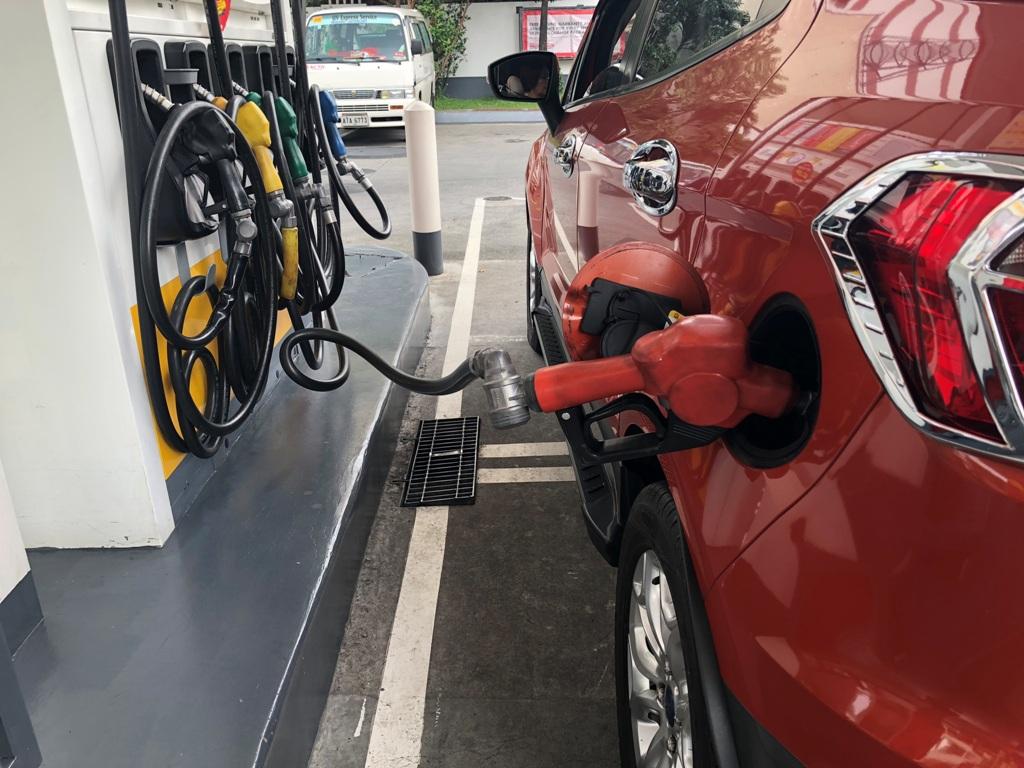Motorists will have to pay more for petroleum products this week, as fuel retailers announced another round of price increases, marking the seventh consecutive week of hikes for both diesel and kerosene.
In separate advisories, several companies stated they will raise prices per liter of gasoline by ₱0.20, diesel by ₱0.80, and kerosene by ₱0.20.
Other companies will implement the same adjustments, excluding kerosene which they do not carry.
The price adjustments will take effect at 6 a.m. on Tuesday, October 7, for all companies except one which will increase prices at 4:01 p.m. the same day.
Other firms have yet to make similar announcements for the week.
The Department of Energy’s Oil Industry Management Bureau earlier projected price increases this week, citing the United States’ imposition of new sanctions on Iran, along with concerns over the global supply glut as OPEC and its partners are set to increase crude production levels.
Last week, companies adjusted prices per liter of gasoline by ₱0.20, while increasing diesel and kerosene prices by ₱0.90 each.
This brought year-to-date adjustments to a total net increase of ₱14.70 per liter for gasoline, ₱17.05 per liter for diesel, and ₱5.45 per liter for kerosene.
Department of Energy
The United States Department of Energy (DOE) is a federal agency established in 1977 in response to the 1970s energy crisis, consolidating various energy-related government programs. Its primary mission is to ensure America’s security and prosperity by addressing its energy, environmental, and nuclear challenges through transformative science and technology solutions. The DOE also manages the nation’s nuclear weapons program, environmental cleanup of the nuclear weapons complex, and energy policy research.
Oil Industry Management Bureau
The Oil Industry Management Bureau is a government administrative body responsible for regulating and overseeing a nation’s petroleum sector. It typically emerged in oil-rich countries during the 20th century to manage national resources, control production, and attract foreign investment. Its functions ensure the strategic development and operational efficiency of the national oil industry.
United States
The United States is a North American nation founded in 1776 after declaring independence from Great Britain. Its history is marked by westward expansion, a civil war that ended slavery, and its emergence as a global superpower in the 20th century. Culturally, it is a diverse melting pot known for its significant global influence in areas like entertainment, technology, and politics.
Iran
Iran is a country with a rich cultural heritage dating back thousands of years, home to one of the world’s oldest continuous major civilizations and the historic Persian Empire. It features numerous UNESCO World Heritage sites, including the magnificent ruins of Persepolis, the dazzling Islamic architecture of Isfahan’s Naqsh-e Jahan Square, and the ancient Elamite complex of Chogha Zanbil. This land has been a cradle of art, science, and poetry, deeply influenced by Zoroastrian traditions and later by its role as a major center of Islamic culture.
OPEC
OPEC, or the Organization of the Petroleum Exporting Countries, is an intergovernmental organization founded in 1960 by five founding members: Iran, Iraq, Kuwait, Saudi Arabia, and Venezuela. Its primary purpose is to coordinate and unify the petroleum policies of its member countries to secure fair and stable prices for petroleum producers. The organization has played a major role in the global oil market, most notably during the 1973 oil embargo, which caused a significant global energy crisis.





